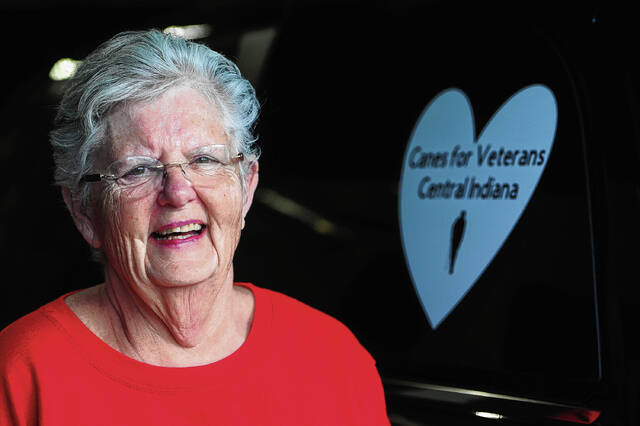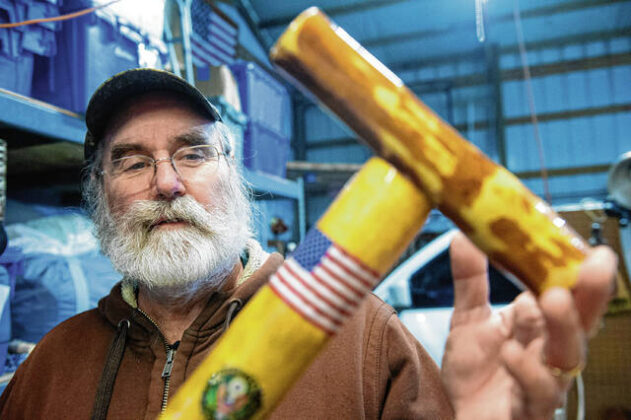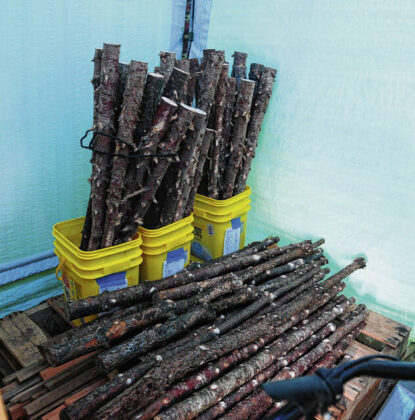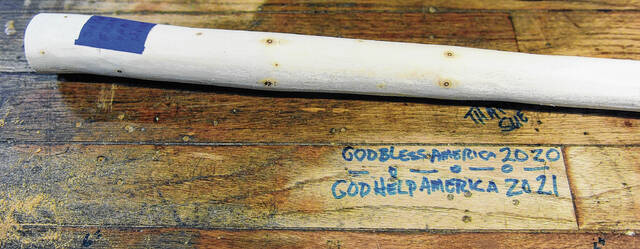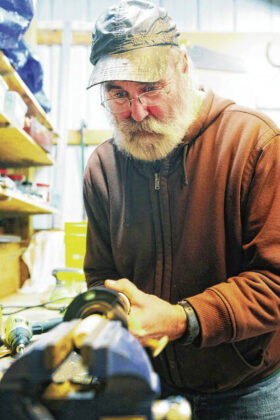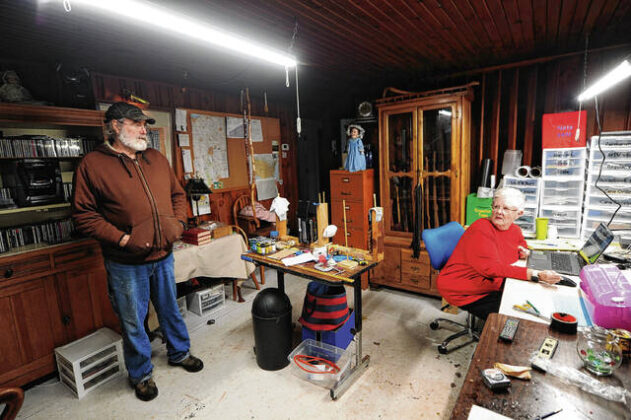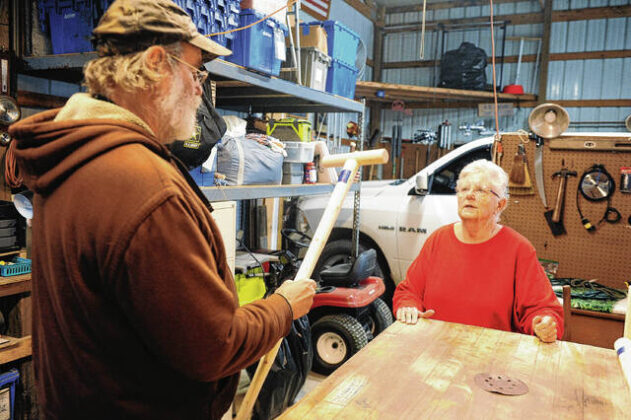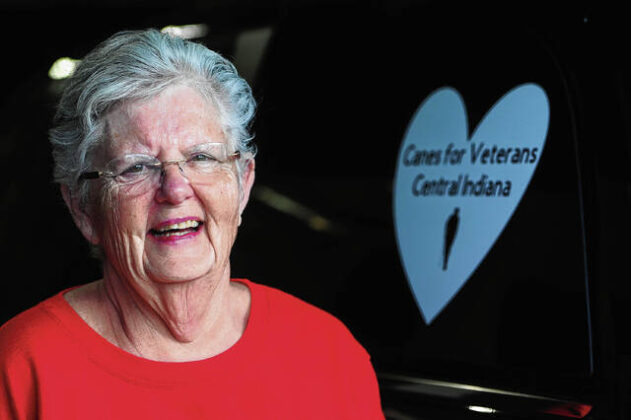FORTVILLE — Joe Ferrell said he and his wife, Sue, were looking for a project. When Joe learned how to make canes from pine trees, he thought about selling them at craft fairs, but the couple soon came up with the idea of giving them away.
The two now run Canes for Veterans Central Indiana, which offers free wooden canes to any military veteran who wants one. The Ferrells make and customize the canes together, out of the raw material of donated Christmas trees.
So far, they’ve sent them out to about 80 veterans in two years. Sue Ferrell said recipients have included two four-star generals and a man who was featured in an episode of the 1970s TV show “M*A*S*H.”
“I meet some pretty neat people,” she said.
The canes are made at no cost to veterans, with the couple purchasing supplies and paying for shipping with their own money and some small donations. When the project began, Joe asked employees at Lowe’s if he could have some of their unsold Christmas trees. The company sent over about 300.
Joe said he’s done some woodworking in the past, but making the canes doesn’t require a lot of technical skill. Pine lumber needs about a year to dry. Once they’re ready, Joe starts debarking the trees. The trunks are used for the bodies of the canes, while the limbs become handles.
“There’s no nails, no nothing, it’s made out of pure pine lumber,” Joe said. “…Pine, once it dries, it’s like a rock.”
After the cane is constructed, Sue completes the process by staining it and customizing it for the individual it’s going to. The designs can feature the logo of a veteran’s branch of service, their dates of service, and nods to their hobbies, like fishing or favorite sports teams. One veteran, Sue recalled, requested that his cane’s design include the names of each of his seven children and 11 grandchildren.
When the canes are complete, Sue said, the couple like to deliver them personally so they can make sure veterans are happy with what they receive. While that’s not always possible, she said, they often receive feedback from people who are happy with their handiwork, or from their families. Positive reviews from veterans are also frequently posted on the Canes for Veterans Central Indiana Facebook page.
“We feel good about it when people call us back to say how much my wife or how much my husband liked the stick,” Sue Ferrell said.
Each of the canes is numbered and features contact information for Canes for Veterans Central Indiana, so that the Ferrells can reconnect a cane to its owner if it gets lost.
The Ferrells said they have about 50 canes ready for the final touches once they receive an individual’s order.
Requests for canes come in from a variety of sources. Many people find out about Canes for Veterans through Facebook and through word of mouth when speaking with other veterans; each cane can serve as a conversation piece that might spark interest from another potential customer. Sue brought a cane to Fortville’s recent Wreaths Across America at Gravel Lawn Cemetery, and she said two people approached her that day about potentially getting a cane for themselves.
The Ferrells also connected with another maker of canes for veterans, in Texas, who had more requests than he could keep up with. They now help fulfill his orders.
For both Sue and Joe, honoring and helping veterans is important.
“If we can do something nice for them, something that’ll give them a little respect, that’s why we do this,” Joe said.
Military service has a long legacy in the Ferrell family. Members of their families who are veterans of the Civil War are buried at Gravel Lawn Cemetery; Joe’s grandmother’s family donated the original land the cemetery is located on. Their work helping veterans is also partially a tribute to Sue’s son, Donald McCarter, who joined the military after 9/11. His service started on a bad note when he injured his leg during basic training and had to be sent home for a time. Later, he worked to intercept messages from opposing forces.
“He was in Iraq twice, he was in Afghanistan, in back-to-back missions,” Sue said. “Normally they let them come home and have eight months to a year; he never got to do that. He came home and was immediately re-deployed.”
Like many veterans, McCarter struggled with the mental health consequences of service, as well as lingering physical pain from injuries. By the time he was discharged, Sue said, her son was struggling with alcoholism and pain medication. He died of natural causes about a year after coming home from his last tour of service.
“It was hard. It still is,” Sue said. “But you know what? He’d be proud of what we’re doing today.”

